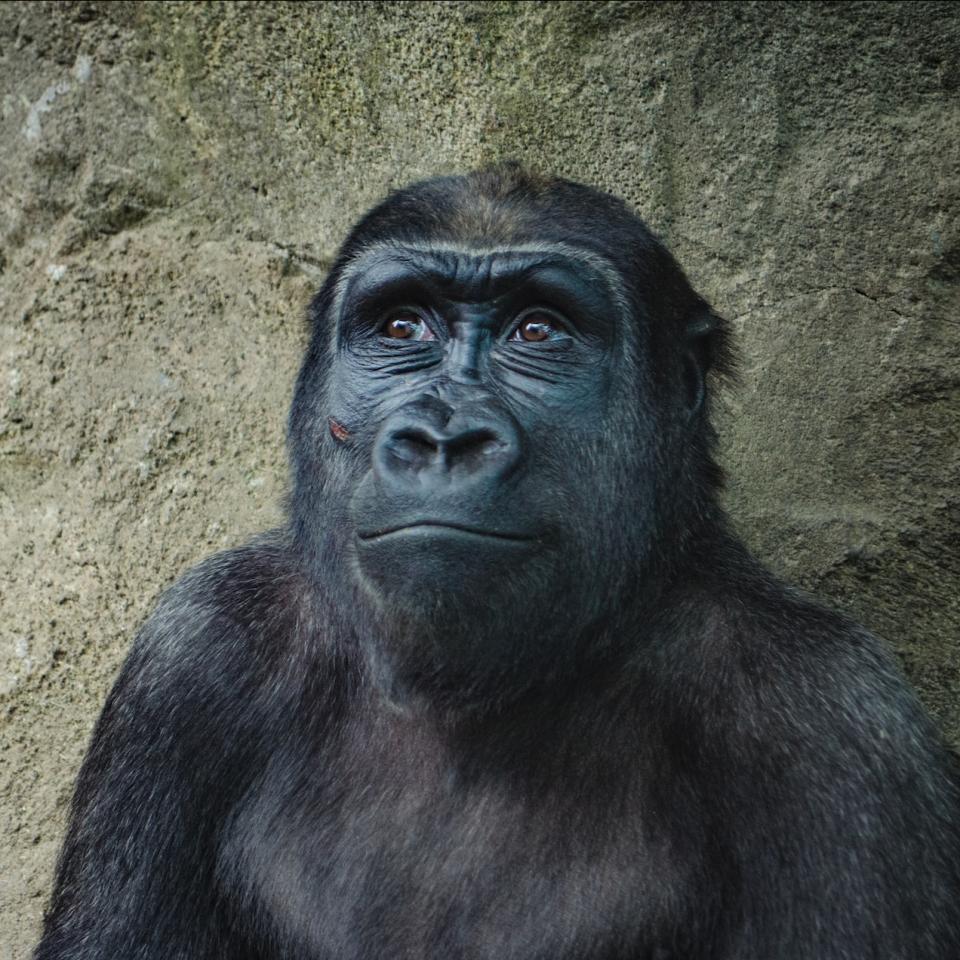
Improving the heart health of great apes – and humans!
Research by Cardiff Metropolitan University scientists has improved the understanding, diagnosis and management of heart disease in critically endangered great apes, while also providing new insight to the evolution of the human heart.
Cardiac (heart) disease is a leading cause of death in men and women worldwide.
Cardiac disease is also a leading cause of death in captive great apes: gorillas, chimpanzees, bonobos and orangutans. However, although these apes are our nearest evolutionary cousins, little was previously known about the structure and function of their hearts or the cause of their heart disease.
International Primate Heart Project
Cardiff Metropolitan University’s Dr Aimee Drane set up the International Primate Heart Project (IPHP) with Professor Rob Shave.
The IPHP is a collaboration between veterinary practitioners, cardiac physiologists and cardiologists to look at the role of physical activity in the evolution of the human cardiovascular system and, at the same time, improve our understanding of heart health and disease in critically endangered great apes.
The research team worked with European zoos, great ape sanctuaries in the Republic of Congo, Zambia, Cameroon and Indonesia, and national and international veterinary teams and organisations.
They completed 543 cardiovascular assessments across the four great ape species in 21 collections across 10 countries. This included the world’s largest wild-born chimpanzee population in Africa.
They created a record for each individual ape and used the collective data to write guidelines to help vets identify cardiac disease in apes. Critically, these assessments have defined the normal heart structure and function in healthy wild-born chimpanzees.
Ensuring the survival of the species
IPHP research has improved the understanding, diagnosis and management of heart disease in critically endangered great apes. It has had an impact on the survival of individual apes and the ongoing care and treatment of apes living in zoological collections and sanctuaries. It also helped identify healthy apes to include in the world’s largest programme returning chimpanzees to the wild, thus helping to ensure the survival of the species.
The data collected as part of the IPHP has also been used to examine how physical activity has affected the evolution of the human heart. The research data showed clear differences in both cardiac structure and function between humans and chimpanzees. This supports the theory that the human heart has evolved to improve our endurance. It might also explain the increase in human cardiovascular disease, as people today generally lead less physically active lifestyles.
Research team
Dr Aimee Drane, Cardiff Metropolitan University, and Professor Rob Shave, The University of British Columbia
